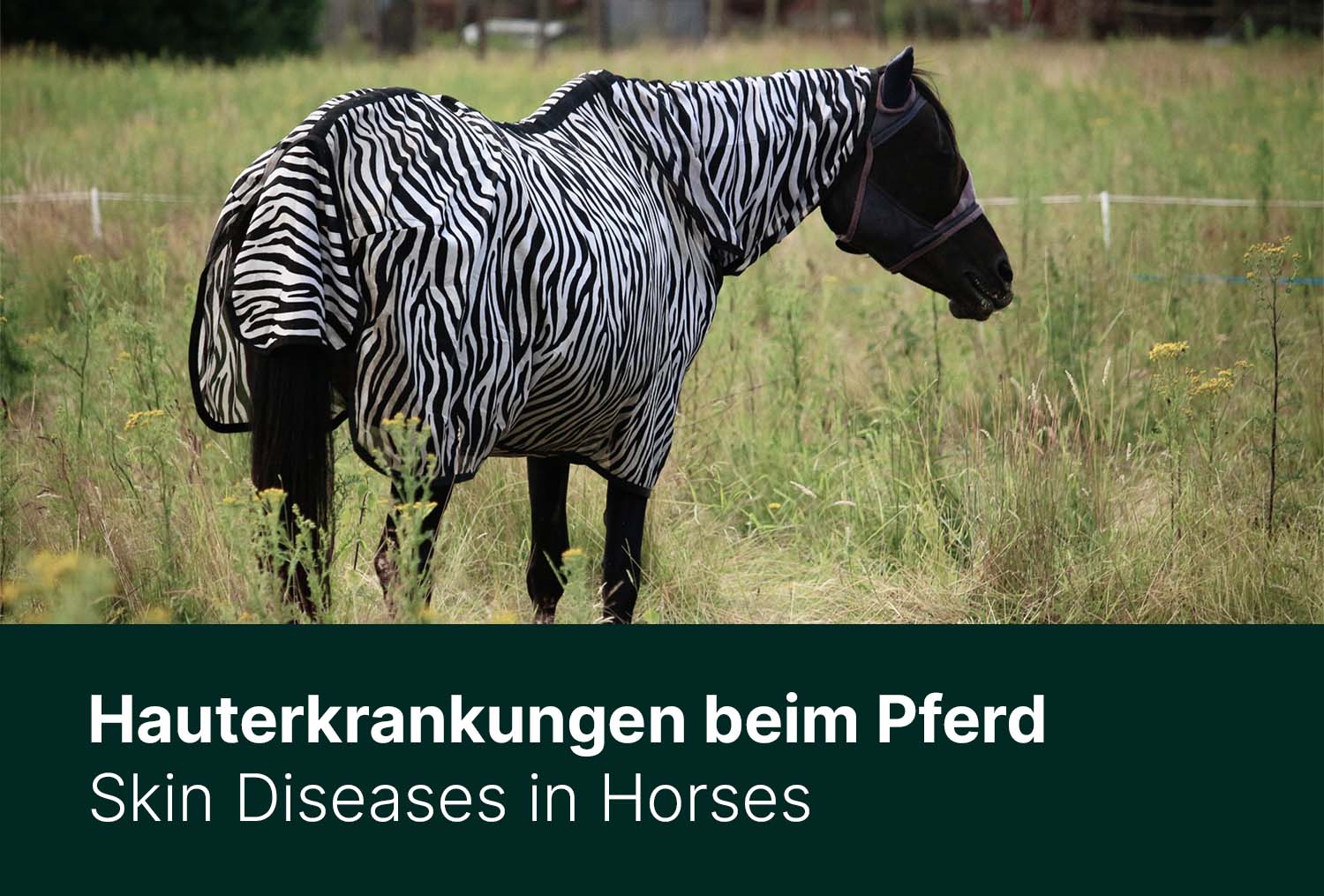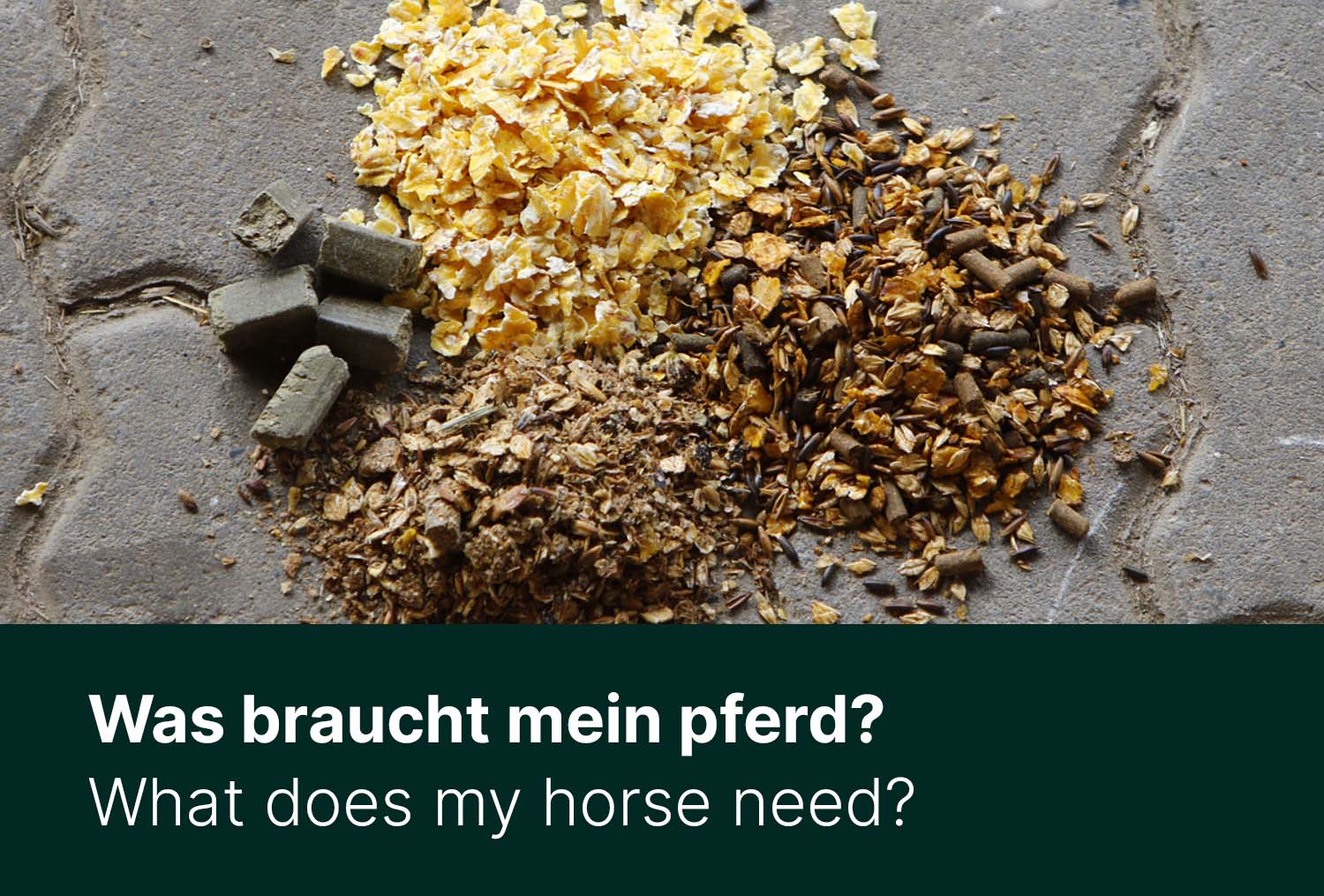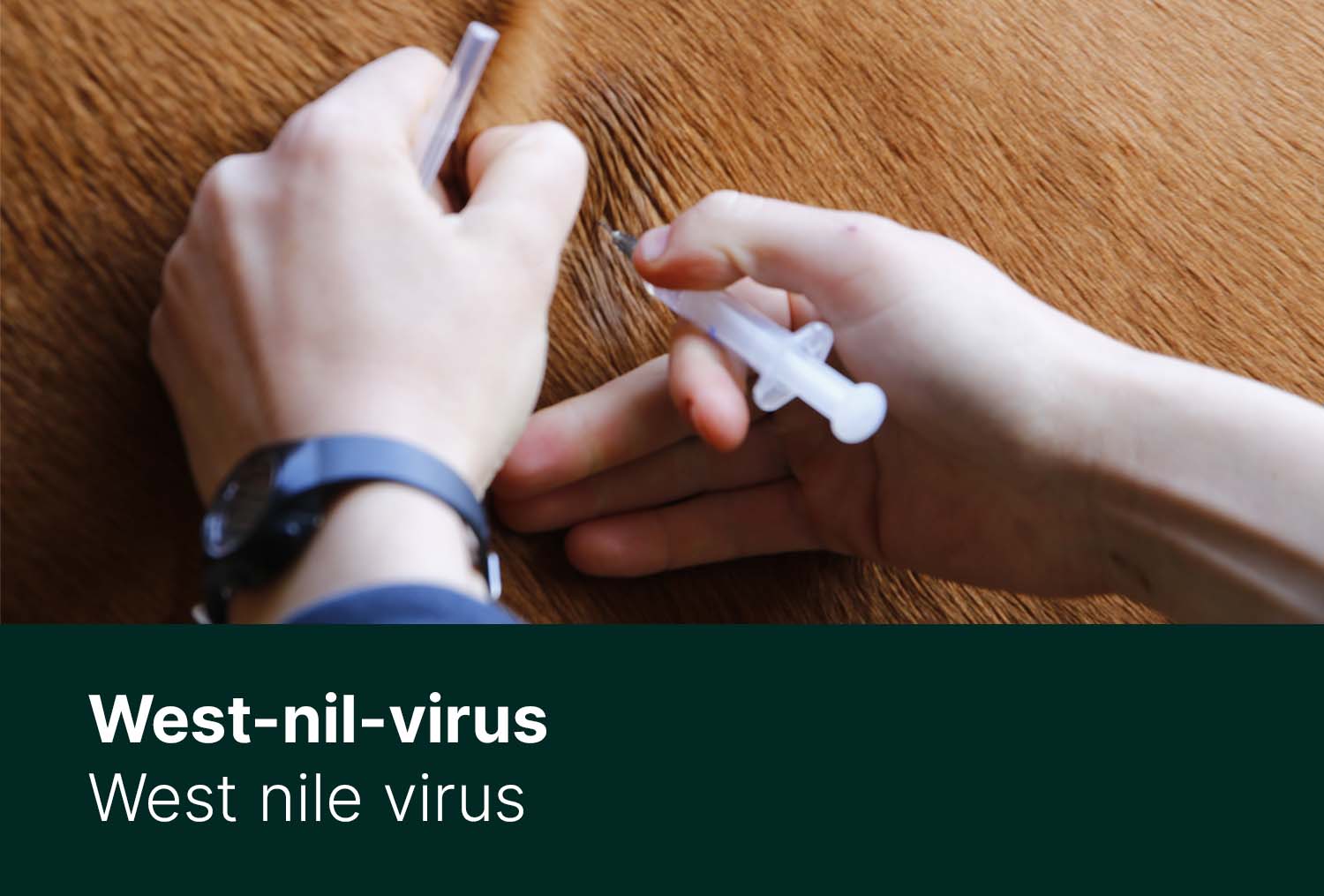The skin is the largest organ in humans and animals, due to the large surface, it is also particularly sensitive to diseases and external environmental influences.
The Summer Eczema
The fur is a mirror of an animal's well-being, so a dull, matt coat, for example, is an indication of discomfort. Skin diseases usually occur in a cause-and-effect complex, i.e. the skin only shows symptoms of another disease and this is precisely why skin treatments can usually only alleviate the symptoms, but not the cause.
Skin problems in particular are a great burden for the affected horse, because in most cases they occur with enormous itching. The horse rubs and scratches, the skin becomes cracked and brittle. This allows bacteria to penetrate. In addition, the areas of skin become inflamed, which makes the itching even worse. A long-lasting cycle that not only causes problems for the horse, but also for the owner: high care and cost expenditure with usually only small improvements. Summer eczema in particular is a disease that is feared by horse owners and no longer only affects special breeds such as Icelanders or Tinkers.
Summer eczema (or also sweet itch) is a hypersensitivity to the bites and stings of specific mosquito species. The reason for this is the protein components contained in mosquito saliva, to which the horse reacts allergically. However, incorrect or inappropriate nutrition can also be the cause of skin problems. Especially when feeding supplements, trace elements or minerals, the requirements should be precisely determined by a vet.
Symptoms
The affected horses show strong itching and numerous chafe marks, especially around the base of the tail or mane as well as on the withers or on the croup. The spots are usually bald, sore and cracked. In the initial stage, even small, bald areas of the mane can be indicative for eczema.
Remedies for the horse
Allergic reactions usually become more intense over time and without treatment when the skin is confronted with the proteins of insect saliva. As an initial remedy and relief, you should make sure that you only keep your horse outside at midday and only until the afternoon - mosquitoes and other insects are most active in the morning and evening. The pasture should also be as far away as possible from ponds or wetlands. Eczema rugs, which practically shield the horse completely from the outside, alleviate the horse's suffering. They should be as light in color as possible and so tightly woven that it is impossible for insects to get through. Even if these blankets, including the neck and head sections, look daunting at first, they are the most sensible prophylaxis and should also be worn during a ride because renewed contact with the allergy trigger causes immediate symptoms. In less severe cases, insect repellent sprays can also provide relief. However, these usually only last for a few hours - who has time to spray the horse again every three hours?
As with all diseases: act before it gets worse.
Treatment
Depending on how severe the eczema is, the affected horses should be treated both externally and internally. Homeopathy is a particularly good alternative to conventional medicine. You can read more about homeopathy in other articles!
Cortisone
Sweet itch is a chronic disease that can only be contained. Cortisone is therefore only advisable in acute emergencies, as it provides immediate relief of symptoms, but is harmful over a longer period of time.
Zinc
Zinc is important for the intact function of the skin. If this is already impaired by the onset of eczema, the horse's zinc requirement increases and it should be fed accordingly - of course only in consultation with your vet.
Protein Reduction
Excess protein intake places additional strain on the horse and its skin metabolism. Therefore, less protein-rich feed should be fed and lean pastures should be preferred.
Effective Microorganisms
“The gut is the cradle of health” - which is why an intact intestinal flora should be ensured above all. Effective microorganisms can even be applied in diluted form to the relevant skin areas and can thus have a positive effect on healing.
Schuessler Salts
The exact quantities and duration of administration should be discussed in advance with an expert pharmacist, alternative practitioner or veterinarian. No. 7 can be used for severe itching, No. 8 is an option for general main problems. No. 4 is suitable for allergic reactions.
Globules
Eczema patients react, in addition to the conventional medical treatment options, very good to homeopathy and globules.
- Sulfur (D6): Severe Scouring, Flaky, Cracked Skin, Itching
- Zincum Metallicum (D6): Severe itching
- Apis (D6): Itching with Swelling, Allergy to Insect Bites
- Arsenicum Album (D12): Nettle-like Rash
- Graphites (D6): Dry Eczema
Cooling and Herbs
Warm, humid weather usually exacerbates the skin reaction and itching. To give the horse relief on hot days, affected areas can be doused with cold water. Cooling compresses also relieve itching. A cooled herbal decoction of camomile or parsley can also have a calming effect and have a positive influence on the healing of the affected areas of skin.
Benzyl Benzoate
This product is used in human medicine to treat scabies and other mite diseases. Its antipruritic effect was discovered by chance. Benzyl benzoate (BB) therefore only alleviates the symptoms. An emulsion is mixed for use: commercially available body lotions can be used. The benzyl benzoate is now added as a 20-25% proportion. The proportion of BB depends on the intensity of the rash and how well the horse tolerates the emulsion (it is advisable to test the mixture on a small area of skin first). To achieve an even better caring effect, part of the body lotion can be replaced with oil (e.g. citronella).
Ready-made emulsions such as Equimyl Emulsion are available to buy. These are doping-free and cortisone-free, soothe itching and help the irritated skin to regenerate.
First Aid for Summer Eczema – at a glance
- Eczema blanket with neck and head section
- Avoid major flight times of insects
- Do not put horses near water
- Relieve itching with cold water or lotions
- Treat wound skin with wound and healing ointment
- Prophylaxis
Every horse owner should be aware that sweet itch is a chronic disease and can therefore recur again and again. Even if the affected horse shows no symptoms for a summer, the prophylactic measures should still be carried out. It would be a shame to lose the mane that has just grown back...







In An Emergency, Things Must Be Done Quickly! - First Aid For Horses
Deworming Horses - Selectively or Systematically?